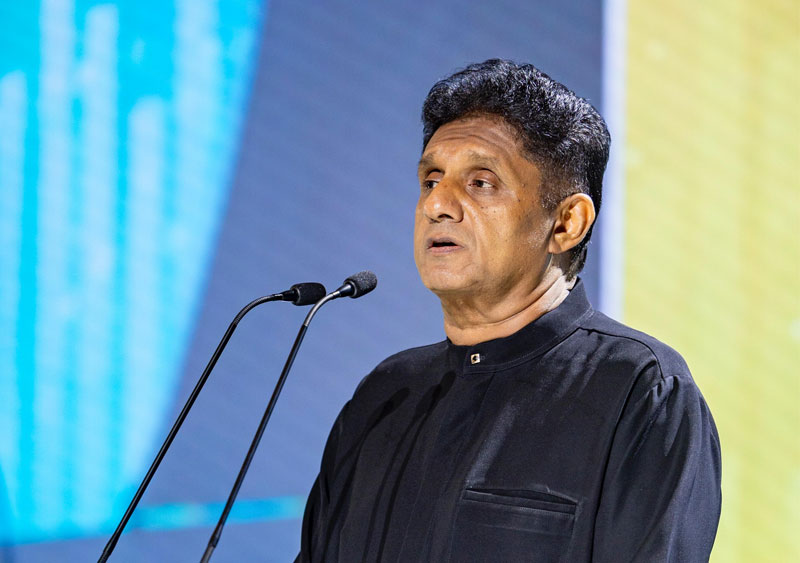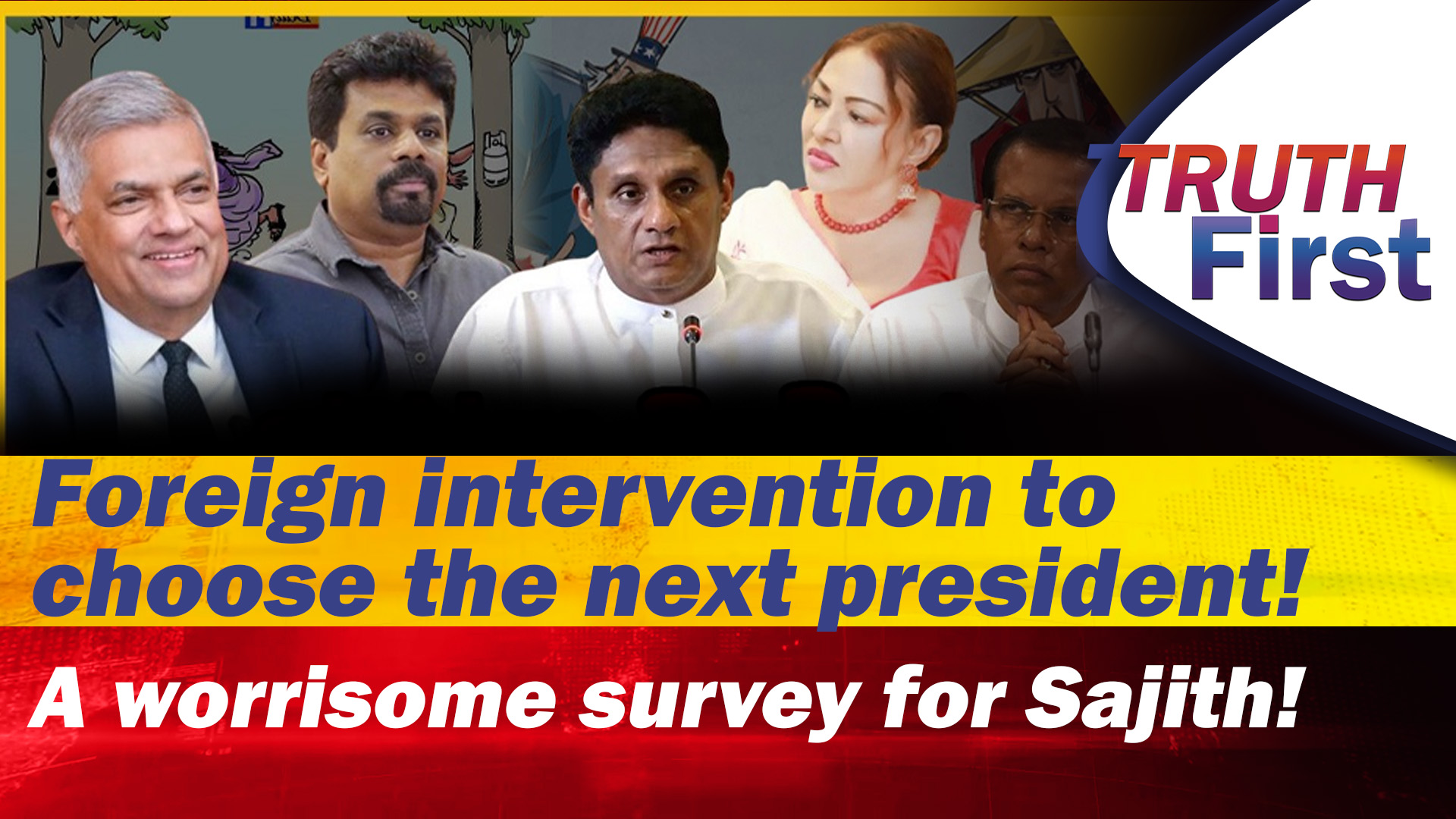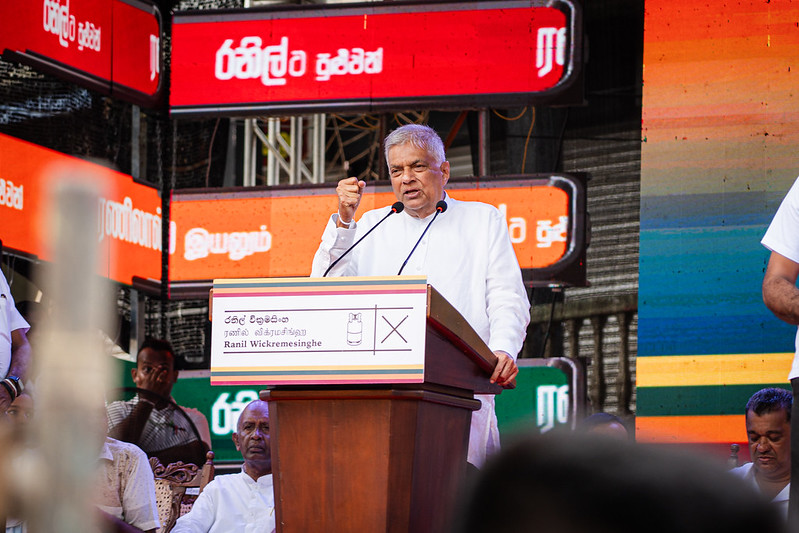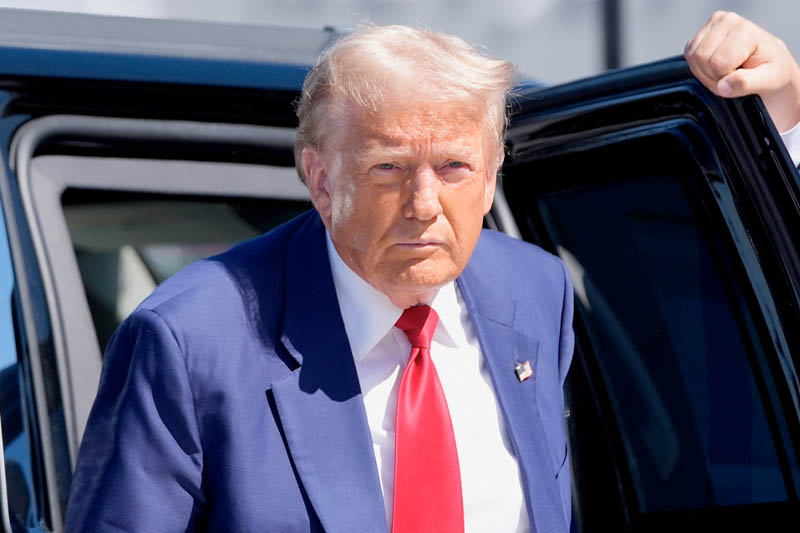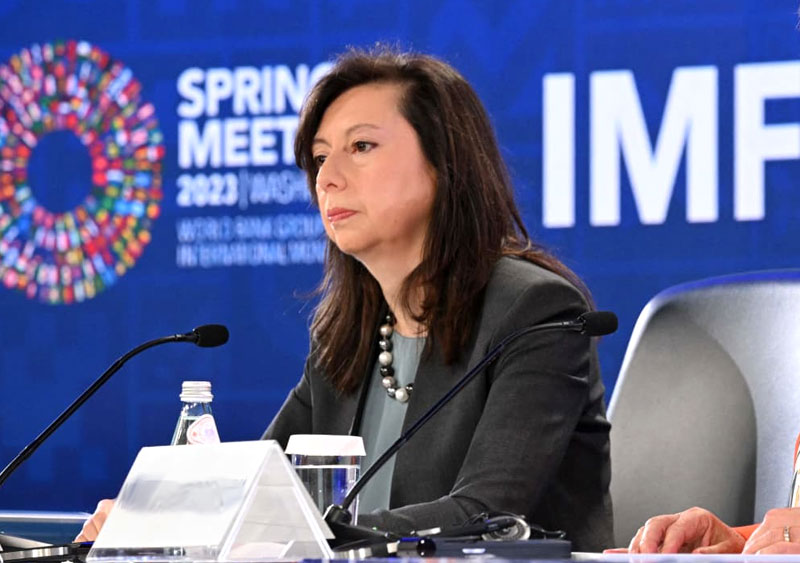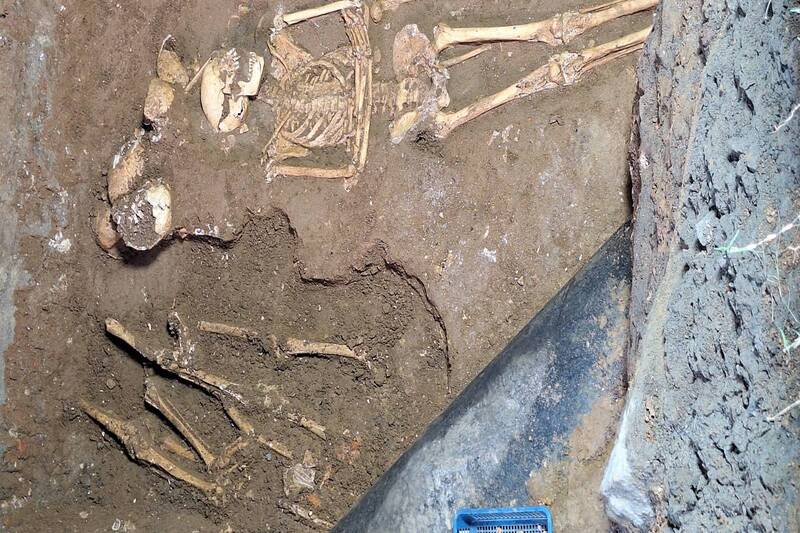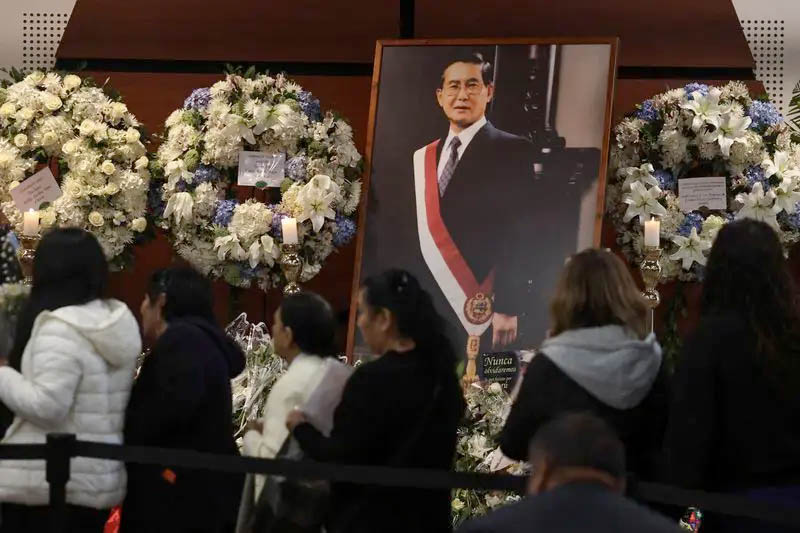One of the main policy priorities among Presidential Candidates is their plan to revive the country’s economy. Many hopes and aspirations have been presented in their manifestos placing special emphasis on debt-restructuring, fair taxation policies, increasing state revenue among others.
Samagi Jana Balawegaya Presidential Candidate and Opposition Leader Sajith Premadasa launched the Blueprint 3.0 - Towards an advanced social market economy at a gala event on Wednesday (September 4).
The event witnessed the participation of leading businessmen, professionals, entrepreneurs and many other distinguished guests.
Speaking at the event SJB members Eran Wickramaratne, Dr. Harsha De Silva and Kabir Hashim explained the technicalities of the document with regards to 27 policy formulation sectors.
“What this blueprint talks about is the vision for our country,” said Dr. De Silva. “It’s not just a plan, but a promise to rebuild Sri Lanka. A promise to charter a path towards resilience, innovation and inclusive development. A promise to ensure that all segments of society benefit from our recovery and future growth. Our promise is based on our ideology – A social market economy. It’s a synthesis of economic freedom; that means we believe in markets and economic justice. We believe in inclusivity and equity.
We want to create an economy that not only glows, but grows for everyone. It’s about people, empowering every Sri Lankan to contribute and benefit from development,” he added.
Wickramaratne elaborated on how inflation was created due to wrong economic policies and why macro financial stability is needed. He said that it is the responsibility of a government to manage a macroeconomy. “The SJB philosophy is committed to the fundamental principles of devolution. We believe in strengthening the private sector, small and medium scale enterprises. We want to have inclusive and equitable growth,” he said while adding that corruption is a huge cost and assured that the rule of law would be strengthened under a SJB administration.
In his speech, Presidential Candidate Sajith Premadasa said that he is proud of the plan that had been presented and prouder of the capacity of the SJB team executing it. “We are all in the midst of an extremely critical time period, a turning point that presents immense challenges as well as incredible opportunities. But throughout history, countries have faced the harsh realities of bankruptcy. They didn’t just survive but came back stronger. They used their crises as a springboard for change. I believe with all my heart, that Sri Lanka can do the same,” he said.
He added that even though there had been plenty of plans that had the potential to elevate the nation, politics have stood in the way and political interests have clashed with what’s best for the people. “It is extremely important to consider your vote in this context. Pay as much attention to the team as you pay to the plan. We cannot afford shallow thinking. We need to consider what it takes to make a real change and by that I mean growth for Sri Lanka. We need a clear, unified mandate, not one that’s compromising and adopting. We must commence with comprehensive constitutional change. It’s within this democratic framework that we can build a strong foundation. SJB is the only team with a clear plan. It’s a strong team that possesses the political will to deliver the necessary reforms,” he said.
Following the speeches, a Q&A session was held where several questions from the audience were posed to the speakers.
Excerpts of the Q&A session are as follows:
Q: What actions will SJB take to reduce public expenditure, because increasing taxes alone cannot be the only solution?
Sajith Premadasa: We will take a very careful look at our expenditure programmes. We will be very surgical in our approach in allocating resources to the priority items of the National Development Agenda. We will make all attempts to cut down waste and unnecessary expenditure. The policymakers and decision-makers will act as role models in terms of utilising scarce resources that we have and we will ensure that those resources are allocated for national, economic, social, education, health and other priorities. We will also make sure that there’ll be adequate accountability and responsibility in expending the finite resources that we have. It is very important that as temporary trustees, we are very particular about the manner in which we use taxpayers’ funds. We will on the one hand strive to eradicate waste, mismanagement, duplication and also direct resources to ensure that we achieve our national objectives. And also on the other hand be accountable, responsible and transparent in allocating funds and implementing programmes. We will also have a strong evaluation and monitoring mechanism to ensure that objectives are reached within a specified time span. That’s the way we will strive to ensure that government expenditure is controlled and managed in a manner that it contributes to the nation’s prosperity.
Q: The youth aspire to be able to afford a vehicle, housing lease and a reasonable living. Our neighbour India has been able to make the economy bearable whilst Lankans are pushed against the wall and left to leave the country seeking a better future. What practical methods will you take to make the wishes of the youth attainable and how soon will it be?
Dr. Harsha De Silva: We hope our children will be able to inherit something that they would love to live in, not to leave. Our whole effort would be to try and help these people feel that we are on the right track. Things are not going to change overnight. Today people see what others enjoy, Tik Tok, Instagram – these are not things that are unachievable, but they somehow seem so far away in this country. Young people when they get married would love to have a place of their own, but how many young people are able to buy an apartment, build a house? It’s beyond the reach of young people. There’s nothing for less than Rs. 20-30 million. Affording a house is impossible. These aren’t unreasonable things. If you can create wealth, if you can create opportunities these young people can be employed, and that can provide them with a decent salary at the end of the month or provide opportunities for entrepreneurship, I guess then they will feel that their dreams may come true. You can’t just wait and do nothing and demand. Everybody will need to be given something. So we are going to create opportunities for young people to work hard and then enjoy the fruits of their hard work. Like Lee Kwan Yew said, unless you work hard you will not achieve anything.
Q: What will you do to change the corrupt system and also create a healthy economy, without taxing the few individual taxpayers?
Eran Wickremeratne: On the corruption issue, I think it’s a question of trust. We previously mentioned about the Independent Public Prosecutor’s Office and I think it’s a question of it working. If it works and if one of us is out behind bars, it will sort the problem. I agree about taxing the few taxpayers. The tax net has to be widened. We had that exercise in 2017/2018, but we didn’t become very popular doing it, but it doubled the number of taxpayers in the country. Everybody needs to take responsibility to be the taxers. I’m talking as a professional. We have to make our contribution. So many people were outside the net. We were able to get them to come into the net even if they were professionals because that is the only way that we can create some social stability. The burden has to be borne by everybody and not just those who are already paying.
Q: What areas/ sections of the IMF agreement will be renegotiated under a SJB administration?
Kabir Hashim: We have clearly stated to the IMF that we are looking to make some amendments within the framework. We want to stick to the key targets. The revenue to GDP target of 15.4% in 2028 is something we stand by. The debt to GDP target of 95% and the 2.3% primary surplus will not be changed. But we consistently said how we differ on how we get to these targets. For example the burden on people in terms of the PAYE tax is huge. We talked about amending the Personal Income Tax slabs from 1% to 24% for those earning under Rs. 500,000. This would give relief to a lot of people under the PAYE tax net. Those earning above a certain amount, 36% will still apply. There won’t be huge losses of revenue because compliance will be greater when you make it easier on the people. We are not in agreement with the imputed rental tax on households. We want to make an amendment because it’s not fair and not practical. There’s already a tax on transactions, so having an additional Capital Gains Tax is going to be a problem because we want to incentivise the capital markets. Our capital markets are going to play a huge role because of a capital expenditure of 2%. Large infrastructure projects will have to be funded by public-private participation and the equities markets. So unless we support these it won’t be practical. We have looked at these changes within the framework and it won’t affect the agreement with IMF and I’m sure they will be able to accommodate our requests.
Q: How are you going to tackle SOE reforms?
Sajith Premadasa: State-owned enterprises can no more be a burden to the country, economy, taxpayers and the people. We have to make sure that SOEs become sustainable resources to the country. SOE reforms are integral to transformative economic policies that we hope to implement. We believe that SOEs have to be looked at individually. Those who are presently making profits need to ensure that there are methodologies to enhance the profits. Those who are loss-making, we would look at models that exist in Singapore, for example the TEMASEK model whereby SOE reforms will be specific, targeted and ensure that they don’t become a burden on the country. In the same context, certain SOEs perform important functions that are directly correlated to national security issues. So we will look at those aspects as well. We would like to ensure that services that are rendered and delivered by the SOEs should be of high quality and standards. That can only be achieved by bringing in new actors, new private partners into the competitive process. This competitive process will ensure that there is a delivery of high quality and high standard services to the customers and the consumer. That’s an issue we will address in a forthright manner. These are issues that can be avoided. It cannot be shelved. We have to be transparent and open about these issues and our primary goal is to ensure that SOEs are not a burden to the country and the economy and that SOEs provide an efficient service to the people of Sri Lanka.


